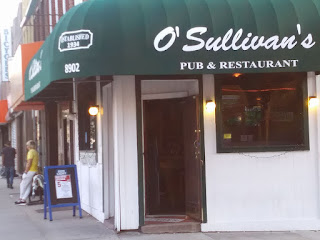Man O'War

I just saw “War Horse” on Broadway with my family yesterday and although it was about as subtle as a kick in the head from a Clydesdale, I had a great time.
The tale of a boy and his horse who are dragged into the screaming hell known as World War I, “War Horse,” —now the subject of a Steven Spielberg film—is the kind of production that the word “extravaganza” was coined for.
The cast is huge—as if a Cecil B. DeMille picture had jumped off a movie screen. The effects are stunning as puppeteers bring the horse, Joey, to life and recreate ferocious battles and doomed cavalry charges across No Man’s Land. This is theater as theme park.
The story could not be simpler—basically "Lassie" with hooves and a bridle, but there’s so much going on you probably won’t object to the lightweight plot.
Nick Stafford’s play is based on a Michael Morpurgo’s novel and it premiered in October 2007 at the Royal National-Olivier Theatre in London. The play opened at the Vivian Beaumont Theater on Broadway just about a year ago and it has received five Tony awards.
In researching the novel, Morpurgo learned that a million horses from the U.K. had died during the war and he reasoned that an appalling total of 10 million horses were killed in the war to end all wars. Of course, when human beings are dying in such hideous numbers, not too many people were worried about horses.
Giddyup!
The puppeteers are quite visible as they move about the stage, but you stop seeing them after a short time as you watch Joey grow from a foal to a full-fledged equine.
Albert, a young Devon farm boy, loves Joey, but Albert’s drunken loser of a father sells the horse to the British Army for 100 pounds. Refusing to give up on Joey, Albert lies about his age and joins the army to track down his beloved horse.
The play brutally illustrates the insanity of the cavalry charge in the age of mechanized warfare. The sight of doomed soldiers raising their sabers as the ride straight into withering machine gunfire makes you shake your head in horror and disbelief.

Two scenes stand out in my mind. The first occurs when Albert arrives in France and sees a group of mangled soldiers dragging themselves toward the ship that will take them home. They look like creatures from a monster movie.
The second happens in the middle of a battlefield where Joey comes face to face with a tank, yes, a tank. Two different two centuries seem to collide as machine and animal square off. It is a moment of incredible stagecraft.
The funny thing is I usually admire how plays can capture our imaginations with little more than a bare stage, where actors take us away with just their words. But then I also thrive on independent films while taking in Hollywood blockbusters. That’s what make horses race.
I was teary-eyed at the ending, of course, but that’s hardly news to anyone who knows me. "War Horse" will never get confused with “Waiting for Godot,” but it’s still one hell of a ride.



Comments
*two thumbs up*
OMG...this play sounds like something I would LOVE!
"The cast is huge—as if a Cecil B. DeMille picture had jumped off a movie screen."
WOW! I can imagine that!
I think it's so cool that the horses are actually puppets! And I know what you mean about the puppeteers becoming invisible because it was the same way when I saw the play "Equus" on Broadway back in the late 70's; you didn't even notice the horse was a man.
I just clicked over to the link you left on the play and the photos are faaaaaaaaabulous!
Thanks so much for sharing, buddy!
Have a super week!
That conflict has been described as a "rich man's war, poor man's fight"--an apt description for just about any war.